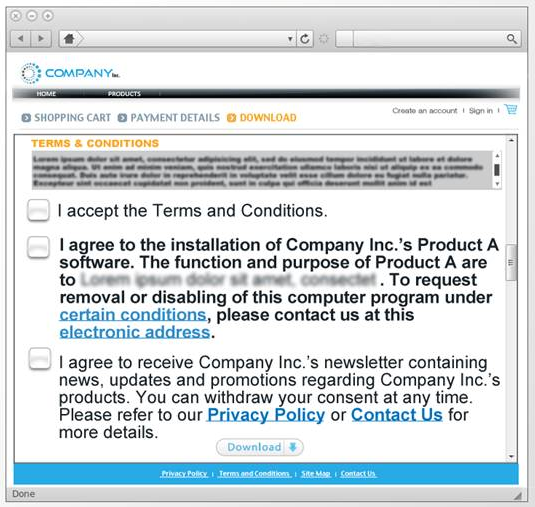Canada’s Anti Spam Legislation (CASL) took effect on July 1, 2014, effectively altering the acceptable practices of collecting prospective lists and sending Commercial Electronic Messages (CEMs) in Canada. Under the new law, businesses must gain Express or Implied consent from recipients prior to sending email, text or social media messages, and keep proof of this consent. If your business launches a commercial campaign, be sure to follow these strict regulations, otherwise you run the risk of monetary penalties and even criminal sanctions!
Implied Consent is valid under CASL when one of the following applies:
- The sender has an existing relationship with the recipient, since the recipient has:
a) Purchased a product or service within the past two years
b) Accepted a business, investment or gaming opportunity within the past two years
c) Entered into a written contract within the past two years
d) Inquired or applied for a product or service within the past six months
- The recipient has “conspicuously published” their email address in a publication that is relevant to the sender’s email, text or social media message, and the publication is not accompanied by a statement that the person does not wish to receive unsolicited messages
- The recipient has disclosed their email address to the sender without indicating a wish not to receive unsolicited messages, and the message is relevant to the recipient’s business, role, functions or duties
Express Consent is valid under CASL when all of the following apply:
- When requesting consent, the purpose for obtaining consent is clearly and simply stated
- The sender or the person on whose behalf consent is requested is identified by their name, mailing address and either a telephone number, email address or web address
- The recipient is informed that they can unsubscribe at any time
- Consent must be opt-in, not opt-out
- The evidence of express consent is retained
- Consent cannot be bundled with consent for Terms and Conditions

This image showcases a valid request for consent - notice the boxes must be proactively checked off (opt-in, not opt-out), and there are two distinct checkboxes to accept Terms and Conditions versus the company's newsletter.
To view more examples by CRTC, click here
Obtaining proof of consent and retaining valid CASL records:
- Proof can be obtained verbally or in writing
- If proof is obtained verbally, it must be verifiable by a third independent party, or there must be a complete and unedited audio recording retained
- The Canadian Radio-television and Telecommunications Commission (CRTC) suggests to keep records including:
a) Whether the consent was gained orally or in writing
b) The date consent was obtained
c) Why consent was being obtained
d) The manner in which it was obtained
Quick Tip: The onus is on the person who alleges that they have consent to prove it, and this is examined on a case-by-case basis.
When is CASL going to be enforced?
The original CASL requirements came in to effect on July 1, 2014, which included the laws regarding consent. The Private Right of Action, which allows the public to take companies and individuals to court for allegedly contravening the act, takes effect on July 1, 2017. Up until this time, CRTC is solely responsible for enforcing CASL. This three year postponement of the Private Right of Action is meant as a transition period to allow the development of better understanding of CASL before strict penalties can be incurred.
During this transitional period, companies and individuals are given leeway with Implied Consent requirements. The definition of an existing relationship is not subject to the same limitation periods (two years or six months) that would otherwise be applicable under CASL. Instead, the periods extend to three years. Additionally, if the sender and recipient have communicated with CEMs in the past three years, Implied Consent is considered valid.
CASL and GamePlan
Compliancy is serious, and GamePlan endorses all privacy regulations completely. If you found this information helpful, be sure to download our free CASL Compliancy Checklist so that you can reference CASL requirements quickly and easily!
We are always here to keep you posted on updated rules and regulations that govern online marketing. However, this information is not meant to be interpreted as legal advice and if you have specific legal questions, we recommend that you contact your attorney.









